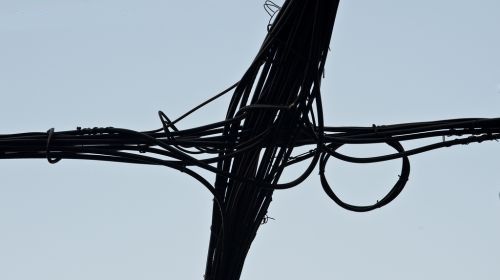
The D.C. Circuit Court of Appeals today issued a long-awaited decision in a challenge to the Federal Communications Commission’s “net neutrality” or “open internet” regulations. As expected, the court invalidated two of these rules.
One of those rules barred broadband providers like Comcast from charging web sites (like Netflix or Hulu) extra to get their data to consumers faster. The other prevented providers from blocking users from accessing lawful internet services, like Skype (which competes with many broadband providers’ phone services).
Basically, these rules were meant to do one big thing. They prevented the broadband providers—many of which face little meaningful competition in a lot of the country—from disadvantaging newer, less well-resourced internet services that cannot afford to pay for a “fast lane.”
Reaction to the decision has been general disappointment, and rightfully so. But all is not lost and, to the extent the decision forces the FCC to clarify and improve its regulations, some might be gained.
The court actually said that the FCC could promulgate net neutrality regulations but that it had failed to do so under the proper legal framework.
Accordingly, the FCC could actually “heal itself.” It could, without going back to Congress, reclassify broadband service under the Communications Act as a “common carrier,” a service, much like plain-old-telephone-service or passenger rail, that holds itself out as available to all comers.
The heart of common carriage regulation is that common carriers cannot “unreasonably” discriminate among users. That is, you don’t have to let passengers on when the train is full, but you can’t deny somebody passage because you dislike their face or because they own a competing train.
The court also allowed a couple of key arguments by the FCC to stand, to the chagrin of one judge on the panel who would have held, flatly, that the FCC does not have any authority to regulate broadband providers as common carriers under existing law.
First, the FCC had initially justified its rules on the basis of an important section (§ 706) of the 1996 Telecommunications Act, which directed the FCC to encourage the deployment of broadband service.
Open internet rules, the FCC reasoned, improve services provided over the internet because they prevent the preferential treatment of rich, established services over poor, newly created services. Improved services, in turn, drive demand for broadband. Demand for broadband drives investment in broadband. Thus, open internet rules drive broadband deployment. Two of the judges, found this logic persuasive (assuming the FCC asserts the right source of Congressional authority), though Verizon tried and failed to dismiss it as a “triple cushion-shot.”
The same two judges also approved of a second FCC theory: that broadband providers, assuming customers can’t easily switch when a provider starts unreasonably discriminating or blocking, do have an economic incentive to charge the Googles and Netflixes more at the expense of other content providers. That’s something of a win.
Accordingly, under the decision, the FCC can now unilaterally decide to classify broadband providers as common carriers. Whether the FCC will do so is a much bigger question. At the risk of understatement, it’s a controversial political issue. The ACLU has long said it should, while carefully protecting content providers from content regulation. We shall see. Today’s decision is a disappointment but it may also be the catalyst for a sustainable open internet regime.
For an overview of the net neutrality issue and why it’s important, see the ACLU’s 2010 report, “Net Neutrality 101.”

